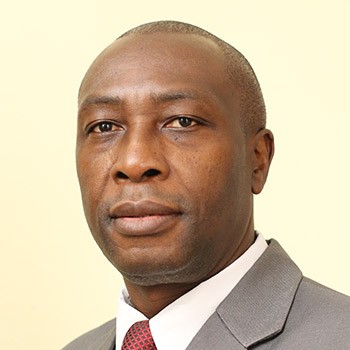I became an accountant because of my comfort with numbers and my tolerance for the ambiguity of numbers in accounting.
My first role was with BDO, where I was exposed to a wide range of industries. Moving on, I became an analyst for a food manufacturing company, followed by financial roles with a leading clothing retailer, a power company, then as a management accountant in a Botswanan diamond-mining business before venturing into education. The management accountant role was necessitated by a dire economic situation in Zimbabwe at that time. The rewarding aspect of taking the risk to work outside of my country was to find myself involved in various IT and other projects, and championing corporate governance.
I always wanted to travel further afield. With my family, I left my home country to study for my MBA and PhD, and experience working in the UK. I took a risk in taking this decision without securing a full-time job beforehand. However, ACCA was my safety net, and I soon found myself teaching accounting finance degree courses, both in the UK and then back in Africa while finishing my research.

Qualifications are a badge of professionalism that allow employers – as well as employees – to show their commitment to professional standards
I think that employers do sometimes prefer experience over qualifications. They need to realise that qualifications are a badge of professionalism that allow employers – as well as employees – to show their commitment to professional standards. They allow easy global benchmarking, ensuring that only the best get to be hired.
If I could, I would change laws on access to education and professional training to strengthen them. I would like such training to be accessible to all people of ability and application without any barriers. In some African countries I feel there is protectionism in some professional courses. This will slow down the progress of the past 150 years or so of open access, internationalisation and collaboration. There is a wealth of cross-fertilisation of ideas, research and thought leadership that comes with the internationalisation of professional training and education.
What I enjoy about my job is that it allows me to contribute to future professional accountants through the quality delivery of UK-partner university degree courses in accounting. This allows students to get ACCA exemptions while still working with numbers and technical IFRS issues. I still work with numbers in my role of overseeing the lecturing team for our business courses, being accountable for their profitability. I also ensure continued contribution to revenue through the development of new courses that are aligned to the needs of the economy of Botswana, a rare middle-income country on the African subcontinent.
My biggest achievement has been transitioning between roles, industries and countries almost seamlessly. This fluidity has been made possible by having ACCA as my foundation and fallback. I give back to the profession by assisting its future members, while still keeping in touch with industry through consultancy roles.
If I were not an accountant, I would probably have been a lawyer. Or I might have followed my passion for music and become a sound engineer. I have an abiding interest in music, particularly from Jamaica.
I love to follow advances in science. I am particularly interested in the intersection between research and advances in quantum computing and human brain processing. I also enjoy online chess and word games.


